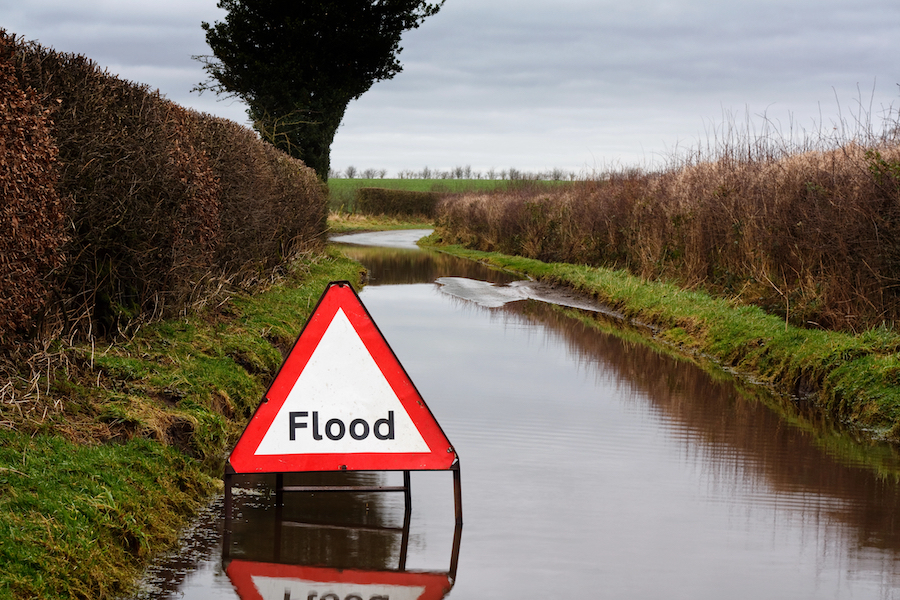Extreme wet weather leads to UK mudslide death
24th May 2024
The recent tragic death of a schoolgirl in a mudslide in Darlington underlines the growing risks of extreme weather in rural areas.

Leah Harrison, a Year 6 pupil at Mount Pleasant Primary School, was killed in a mudslide accident on Wednesday 22nd May during a school trip.
In a statement, the family of the 10-year-old girl said: “Leah Harrison, the happy, bubbly, go-lucky little girl. The beautiful smile, the giddy laugh, the silly jokes.
“You will never ever be forgotten baby girl. You will achieve your dream and become a player for the Lionesses. Spread those wings. May you rest in paradise.”

Yellow weather warning
It is believed that Leah was one of the pupils attending a school residential trip, following the conclusion of SAT tests the previous week.
A Met Office yellow weather warning was in place yesterday, forecasting heavy rain in the area.
BBC Yorkshire climate correspondent Paul Hudson said that Loftus, located around 20 miles away, saw a month’s worth of rainfall in just 12 hours.
Police were called to the mudslide in Carlton-in-Cleveland at 13:15 pm. Thirty members of the Cleveland Local Mountain Rescue Team were deployed to the spot.
The area was cordoned off, and the public were asked to avoid it.
How to protect yourself and your farm in extreme weather conditions
As the UK faces increasing extreme weather conditions, farmers and rural dwellers should take steps to protect themselves.
NFU Mutual offers top tips to protect yourself and your farm during storms:
Before the storm:
- Stay alert for Met Office weather warnings.
- Regularly inspect your farm and keep on top of maintenance by carrying out necessary repairs to buildings, fences and walls while the weather is calm.
- Check that tiles, slates, and roofing sheets are in place, and put away any items that cannot be secured.
- Avoid being near barn doors if there are high winds.
- Make sure gutters are not leaking and are clear of leaves and other debris.
- Protect and lag water pipes in vulnerable areas, and know where the water supply is so that you can turn it off in the event of burst pipes.
- Ensure you have a good tree inspection programme in place, paying particular attention to trees bordering buildings, roads, railway lines and rights of way.
- Prepare for power cuts: have torches and batteries to hand, and make sure any generators are ready to use if required.
- Plan evacuation routes to get staff and livestock to safety in the case of extreme weather, such as floods – identify higher ground that you can move livestock to in the event of flooding.
- Have your insurer’s emergency helpline available.
During the storm:
- Do not leave the house or make journeys unless absolutely necessary.
- If you need to leave the house, avoid the sheltered side of walls when walking.
- If journeys are essential, drive slowly and carefully, staying aware of high winds on exposed roads and ice and water on the road.
- Do not attempt emergency repairs during the storm.
- Keep all building doors and windows closed.
After:
- Be aware that after a storm or weather event, power cables or powerlines may have been brought down.
- Don’t enter any buildings that could be unsafe following a storm.
- Report any damage to your insurer as soon as possible.
Read more rural news.



